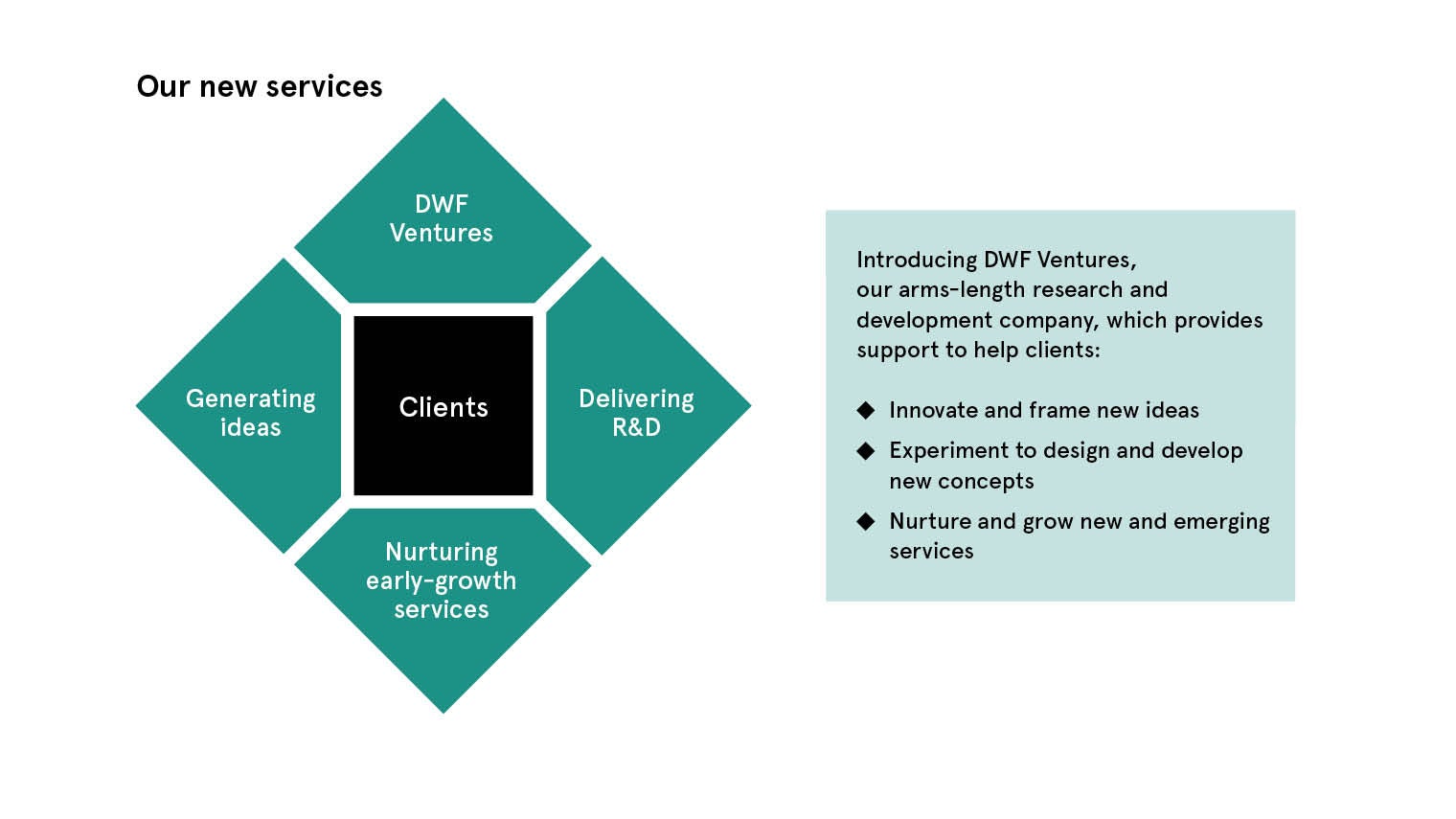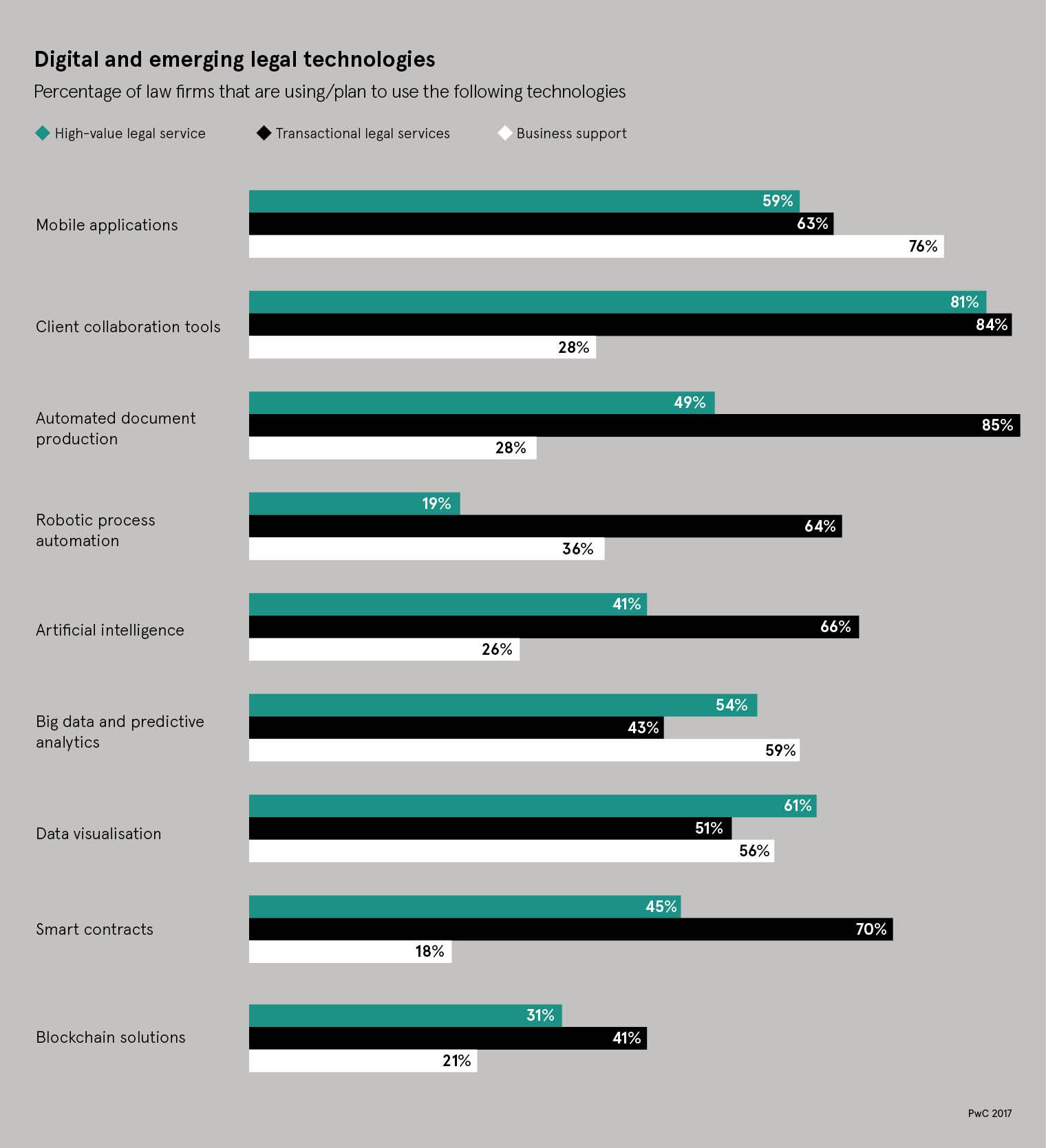Technology, data and alternative business models are disrupting the legal sector, with artificial intelligence (AI) taking over many mundane tasks. Meanwhile, the latest software will allow clients to cost-effectively perform various legal operations they had previously paid the legal industry to undertake.
Legal businesses with an eye to the future will be at the forefront of these developments, commissioning, testing and launching new technology and alternative business models that make clients’ lives simpler. Leaders in this space will focus on reducing costs for clients while improving the effectiveness of legal operations.

Simultaneously, forward-thinking businesses will look to move into a range of connected services with a view to providing a more comprehensive offering, catering for consulting, accountancy, communications and legal services. As the big four – PwC, Deloitte, KPMG and EY – move in on the legal industry’s turf, law firms can match these new rivals by expanding their own services.
To seize these new opportunities, companies must embark on transforming their culture, with lawyers actively evolving their outlook. By building a culture of experimentation, this encourages a broader willingness to try new ways of working. Crucially though, products and services should still be carefully tested with inbuilt ways of mitigating development risks through an effective innovation process. As for all law firms, it is imperative that the accuracy and precision expected from legal services are never compromised.
This is not an unfamiliar story; thanks to the new startup wave, the legal industry faces similar challenges to many industries that are also currently confronting digital disruption. This shift challenges established business models and presents clients with increased choice. Hence, many established businesses are attempting to transform themselves internally before rivals get there first. For law firms, this means seeking out areas that are ripe for change and testing out ways to update their working practices.
To prepare for this shift, a first step for firms would be to rethink the fundamental time-based business model. Historically, the legal sector is driven by time to the point where a legal adviser in a traditional law firm records their day in six-minute units. This attitude towards the emphasis on time, rather than results, will need to change as clients increasingly expect quality service at any length.

At DWF, we recommend three key mechanisms for change in the law firms of the future. A strong research and development culture is crucial, either with a dedicated department within the business or by setting up a separate development arm. Secondly, by alerting senior leaders to new developments on the horizon and they in turn setting aside time to review the latest innovations, firms can ensure those most suitable to certain clients and sectors can be appropriately offered. A third area of change is one that many businesses have dabbled in across the sector, setting up the right environment for early and fast-growth service incubators.
Steps can be taken to ensure law firms nurture progressive ideas, as well as give them the financial backing to commercialise new products. When an initiative or new product has been proven and the time is ripe to launch it, the AN incubator style model offers the resources to move that product into early growth. These suggestions of new services can come from external sources such as startups or from innovations that begin within the law firm itself.
Innovation is not just technology, but about how people make the most of human-only capabilities in an increasingly digital world
At DWF, we champion a strong reputation for innovation that comes from constantly preparing our business for shapeshifting opportunities, stemmed from evolving our culture and business model.
Innovation is not just technology, but about how people make the most of human-only capabilities in an increasingly digital world. Predictions of an AI-fuelled job cull among lawyers are wide off the mark. Document automation, virtual assistants, extraction tools and digital review technologies should free up time for lawyers to instead work on delivering superior, more tailored services to their clients.
Where historically law firms have perhaps looked for recruits in relatively similar backgrounds, in the future those from science, engineering and maths will be increasingly important to provide a varied skillset. This mindset is part of the more agile, change-embracing culture that the shift to an innovation-based model should encourage.
We are in an increasingly competitive landscape where clients demand greater efficiency and lower costs from legal businesses. This, coupled with the threat of lawtech startups, should hammer home the urgency to be proactive and occupy the higher ground of innovation first.


